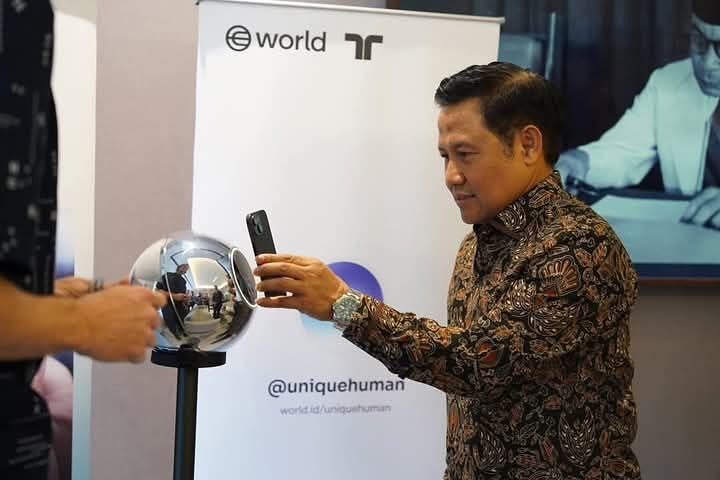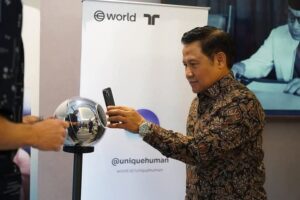Would You Trade Your Iris for Crypto? The Hidden Cost of Biometric Tokens
3 min read
In a world where digital identity is increasingly valuable, a startup called World (formerly Worldcoin) is offering something radical: scan your iris, get some crypto. The company claims this biometric approach can solve issues of identity fraud, bot abuse, and digital exclusion. Sounds futuristic, right? But beneath the sleek tech and grand promises lies a more uncomfortable question: What are you really giving away?
The Pitch: Universal Identity for a Decentralized Future
World’s vision is ambitious: create a global identity system that works regardless of borders or governments. Using an orb-like device that scans your eye, the system creates a “proof of personhood”, one that’s supposedly secure, private, and yours alone. In return, early adopters are promised access to World tokens and the ability to interact with future decentralized services.
But here’s where things get tricky: your biometric data is permanent. Unlike a password, you can’t change your iris.
The Tradeoff: A Few Tokens for Lifelong Biometrics?
At face value, it may feel like a fair deal, you get rewarded for joining early, for helping test a revolutionary idea. But the exchange isn’t just time or attention (like in Web2), it’s your biological identity. Once scanned, your iris pattern is part of a cryptographic record and although the company says it’s anonymized and secure, data privacy experts warn: no system is unhackable.
And if the platform is ever acquired, compromised, or repurposed? You don’t get your iris back.
Who Owns Your Identity?
This brings us to the core ethical debate: Should any private company own or manage a database of human biometrics, even if decentralized?
History shows us that data, once collected, often ends up being repurposed. Facebook started as a social network for college students. Now it’s an advertising behemoth. What happens when a blockchain identity platform pivots, monetizes, or collapses?
The implications go beyond just privacy. In many parts of the world, people are trading irreplaceable biological data for small sums of crypto, often without fully understanding the long-term risks.
Trust, Transparency, and the Illusion of Consent
World claims that their system is open-source, secure, and privacy-conscious. But open-source doesn’t mean easy to audit for the average person. And privacy policies can change. The biggest problem might be that most users don’t read the fine print, and consent. When influenced by financial need, isn’t always entirely voluntary.
Final Thought: Is It Worth It?
Technology always asks us to make tradeoffs. Sometimes those tradeoffs make life better. Other times, they quietly reshape power dynamics in ways we only recognize too late.
World may be the beginning of a new identity layer for the internet. But it’s also a test case in how far people are willing to go and what they’re willing to give up, for early access to the future.
So, would you trade your iris for crypto?
Or is there something about yourself you should never tokenize?






